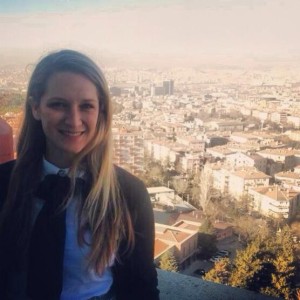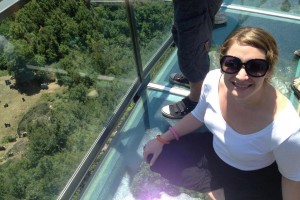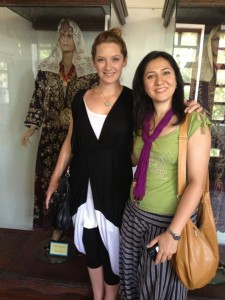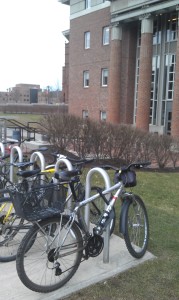For many college students, spring break is about warm beaches and beer but in graduate school, especially in a one year program, the break is about hunting for a job. Each year, Maxwell students organize a networking trip to Washington, D.C. About half to two-thirds of the class will end up working in the region and as a result, is the largest alumni base.
The trip kicked off bright and early on a Monday morning at Maxwell’s new home in Washington, CSIS’s headquarters. Former NASA administrator Sean O’Keefe, MPA ’78, gave the keynote address. A lot of talk has gone into how difficult it is to break into the public sector these days but Mr. O’Keefe recalled how difficult folks said it was during his time at Maxwell and concluded there is never a good time to enter the public sector. It was a refreshing take on the current environment in Washington and set a positive tone for the trip.
Next, we hosted two panels back to back. The first was on working in the federal government. There were representatives from the Federal Transit Authority, the Defense Intelligence Agency and the Department of Education. Representing the mid-senior levels in their career, they talked about how they progressed in their careers and gave advice on getting into the federal government. Representatives from nonprofit and NGO sector made up the second panel and represented the Atlas Service Corps, EDUCAUSE and the Pan American Health Organization. One panelist was not originally from the U.S. and suggested a few ways for international students to obtain jobs in the U.S.
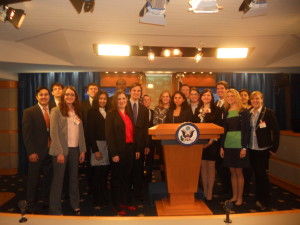
By 11a, we concluded the panel discussion and set folks free to go to site visits. For the next two days, students visited alumni at their offices to discuss how they got there and what they do. The trip organizing committee tries to cover as many interests as possible, from state and local government, federal government, international organizations and the nonprofit and NGO sector, and students visited 27 sites including the Department of State, the Department of Defense, the World Bank, D.C. Public Schools, Brookings Institution, Chemonics and Grant Thornton LLP. Students learned about public diplomacy at the State Department and visited the press briefing room (see photo). At the Defense Department, we met with an alumnus who worked on NATO issues and discussed Ukraine. Despite all that has gone on in the past two weeks, I was touched he kept his commitment to meet with us. He said he welcomed the break from his current duties.
On Monday, the careers and alumni offices hosted one of the largest ever happy hours for alumni and current students to meet and chat over drinks and appetizers. It is a fantastic way to hear about their careers and you never know who will show up. I started talking to an alumnus who worked at HUD. While it was not an area I was particularly interested in working, he was deeply informative and after I told him my interests, he introduced me to a good friend who was working in my dream career. He even offered to help me break into the organization.
Overall, the trip was a great success and it highlighted how the Maxwell Mafia helps each other out without expecting anything in return.
Side note: If you are an incoming student, this trip was almost entirely organized by volunteer students. If you want to make a meaningful impact, join the networking committee.
